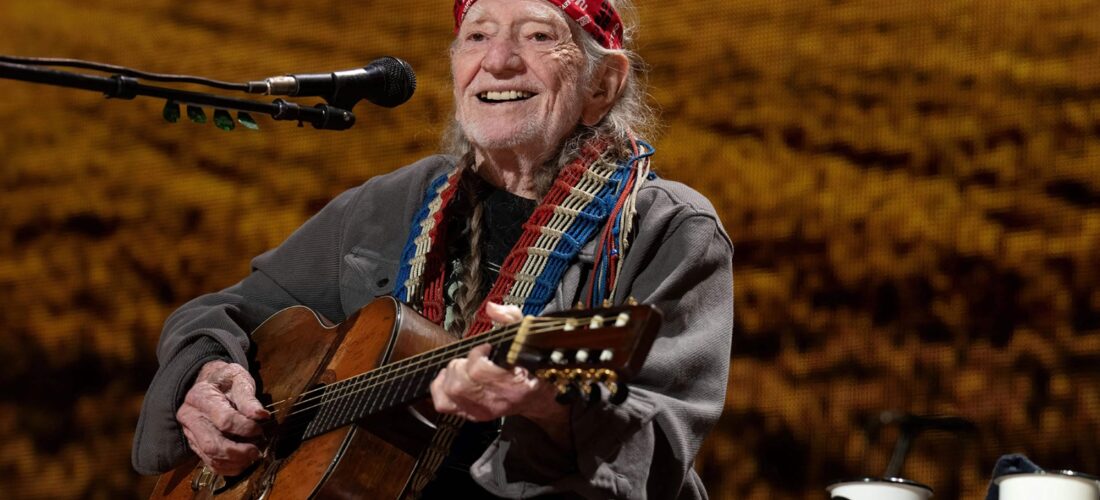Live Nation Ends Artist Merch Cuts at Clubs Around the Country
Concert promotion giant Live Nation is ending merchandise fees for artists at all of its club-sized venues across the country, the company announced on Tuesday as part of a new developing-artist program that it has launched with Willie Nelson.
The “On the Road Again” program, named after Nelson’s famed song, will also give artists playing those venues an extra $1,500 per show Intended to help cover growing tour expenses like gas, transportation, and hotels. Live Nation also said it would give unspecified bonuses to crew workers, and the company will contribute another $5 million to the Crew Nation fund it started during the pandemic.
“Touring is important to artists, so whatever we can do to help other artists, I think we should do it,” Nelson said in a statement. “This program will impact thousands of artists this year and help make touring a little bit easier.”
The program applies to 77 Live Nation venues across the country, including all of its House of Blues and Fillmore locations, according to the company, and it will roll out over the next several months.
Merchandise fees in particular — where concert venues can typically tax between 15 and 30 percent of merch sales from artists who play there — have long been a hot-button topic among artists, who’ve called the practice unfair. Along with a broader critique over scalping and monopolies in live music, Jack Antonoff tweeted over the weekend that merch cuts “make it impossible for most working artists to make a living.” Longtime punk artist Jeff Rosenstock similarly spoke out about the practice earlier this month, writing on Instagram that the fees were forcing him to charge more for his merch.
“So much of the time all that money goes to big corporations like AEG & Live Nation,” Rosenstock wrote. “Seems like the fuckin’ rule now, if you work in a creative field you’re supposed to feel lucky and happy enough to be there to get raked over the coals by millionaires and billionaires who will give you as small as slice of the pie as they can to perpetually show growth in profits.”
Nelson is the face of the new program, but Clyde Lawrence and Jordan Cohen of the indie band Lawrence also called out merchandise fees in their statements in a senate judiciary focused primarily on Live Nation back in January. They’ve been consulting with Live Nation since then about those issues and spoke with the company monthly regarding several of the measures that were announced in the program, particularly the merch cuts.
“The central point here is the merch cut issue, and Jordan and I came in directly with that and other points in that very first meeting [with Live Nation]. We felt heard on that issue right away,” Lawrence tells Rolling Stone. “We want an ecosystem where the venues and artists can thrive, and it doesn’t feel fair for artists to have a significant number of their merchandise sales taken.”
Cohen and Lawrence called the new program “a massive victory for small artists,” noting that the stipends acknowledge the difficulties and expenses small acts face on the road, but most notably highlighting the end of the merch fees.
“I wasn’t sure what to expect before we spoke with them, but we were pleasantly surprised that everyone seems to be on board in that it was time to make a change,” Cohen tells Rolling Stone. “I can’t quite put to words how big that merch money will play a role in the end-of-year finances for developing artists. Millions of dollars across the board. Every developing band will feel this.”
It’s worth noting that Live Nation and AEG-owned venues aren’t the only ones who take merch cuts, and the practice has long been viewed as a part of the economic model for smaller independent venues as well. Some of those venues provide their own employees to work the merchandise booth, and the fees can help cover those labor costs. And while touring has becoming increasingly difficult for young artists, indie venues are also facing challenges staying afloat post-pandemic, as they say their ticket and alcohol sales are down while cancellations from artists are up, making them more reliant on other revenue streams like ticket and merch fees.
The new program comes at a time of increased scrutiny for Live Nation and its corporate sibling Ticketmaster, which has long been criticized by artists, fans, and members of Congress, with extra heat following the on-sale for Taylor Swift’s Eras Tour. Live Nation’s competitors say that the company has made it impossible to compete, and Live Nation is currently facing a Department of Justice investigation over concerns that it holds a monopoly over the live-music business. Live Nation has repeatedly denied the antitrust claims and this year has been more vocal in encouraging lawmakers instead to focus on passing laws that further regulate the secondary market and scalping and give artists more power over their shows.
“Delivering for live artists is always our core mission,” Live Nation CEO Michael Rapino said in a statement regarding the new program. “The live music industry is continuing to grow and as it does, we want to do everything we can to support artists at all levels on their touring journey especially the developing artists in clubs. Like Willie says, this is all about making it a little easier for thousands of artists to continue doing what they love: going out and playing for their fans.”
